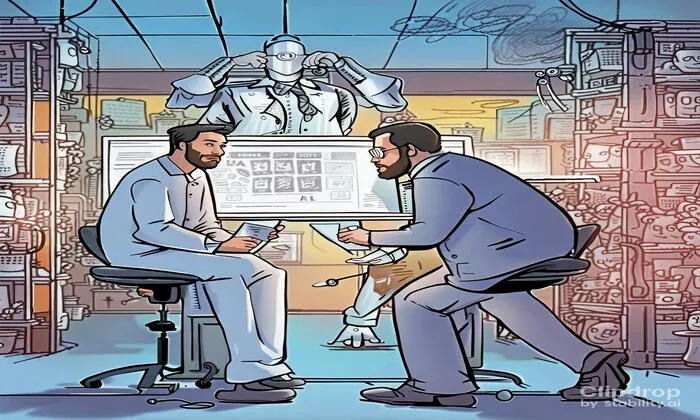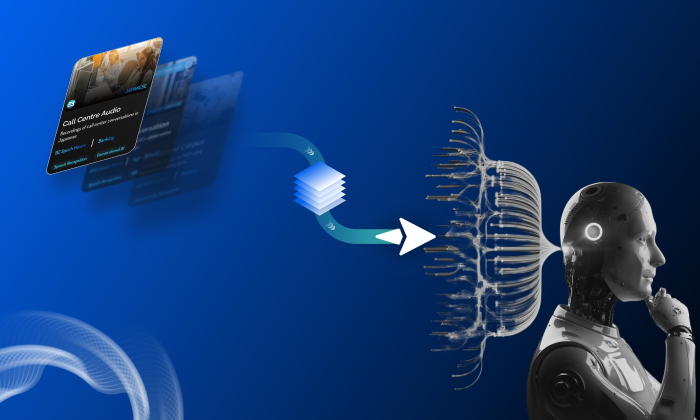How are doctor–patient conversations used in LLM fine-tuning?
LLM
Healthcare
AI Models
Doctor-patient conversations are a goldmine for fine-tuning large language models (LLMs) in healthcare. These dialogues offer rich, real-world data that is essential for developing AI systems capable of understanding and generating healthcare-related text. For AI engineers and product managers, understanding how these interactions contribute to effective, ethical, and user-centric healthcare AI solutions is key.
Understanding Doctor-Patient Conversations in LLM Fine-Tuning
Doctor-patient conversations are typically unscripted dialogues simulating real clinical interactions, including consultations, diagnoses, and follow-ups. By maintaining patient confidentiality, these conversations provide valuable context, ensuring the model understands complex medical terminology and emotional cues while preserving privacy. This ensures the model is trained with authentic, yet anonymized, medical dialogue, critical for accurate healthcare AI development.
Significance of Doctor-Patient Conversations in Healthcare LLMs
Doctor-patient conversations contribute significantly to enhancing the performance of healthcare LLMs by focusing on:
- Clinical Language Proficiency: Helps models understand medical jargon, diagnostic terminology, and treatment discussions.
- Empathy Detection: Trains AI to identify emotional cues, improving the model's ability to foster better patient relationships.
- Intent Recognition: Fine-tunes models to understand patient intents, which is crucial for developing conversational agents for healthcare.
Integrating Doctor-Patient Conversations into LLM Fine-Tuning
The process of integrating these conversations into LLM fine-tuning involves several key steps:
- Data Collection: Conversations are recorded from both telephonic and in-person interactions, ensuring a diverse representation of accents, dialects, and communication styles. FutureBeeAI’s Yugo platform guarantees high-quality, context-rich data.
- Annotation and Transcription: Each conversation is meticulously transcribed to capture nuances such as pauses, emotional shifts, and interruptions. Annotations are added to tag medical intent, empathy levels, and speaker roles, creating a structured dataset for model learning.
- Model Training: Using the annotated data, LLMs are fine-tuned to replicate real-life conversations, focusing on intent recognition and clinical discussion summarization.
- Evaluation and Iteration: After training, the models are evaluated in real-world scenarios. Feedback from healthcare professionals leads to further refinements, ensuring continuous improvement and clinical alignment.
Navigating Key Decisions in Leveraging Healthcare Dialogues
Using doctor-patient conversations for LLM fine-tuning presents several challenges that require careful consideration:
- Data Authenticity vs. Privacy: It’s essential to balance realistic dialogue with privacy compliance. Simulated conversations, coupled with frameworks like HIPAA and GDPR, help mitigate privacy concerns while maintaining data authenticity.
- Diversity vs. Specificity: Teams must decide how diverse the dataset should be, ensuring the model works effectively across a broad demographic spectrum.
- Annotation Depth vs. Resource Allocation: There needs to be a balance between thorough annotation and the constraints of time, budget, and resources.
Real-World Impacts & Use Cases
Successfully implemented doctor-patient conversations have significantly enhanced healthcare AI applications. For instance, AI models fine-tuned with these dialogues have shown improved empathy and accuracy in virtual health assistants, ultimately boosting patient engagement and satisfaction. Many organizations have reported increased model precision in areas such as intent recognition and empathy detection.
By focusing on realistic data collection, careful annotation, and continuous evaluation, doctor-patient conversations are integral to the development of sophisticated LLMs that improve patient interactions and clinical outcomes. For healthcare AI projects requiring robust training data, FutureBeeAI offers scalable solutions with production-ready datasets designed to enhance your AI systems.
FAQs
Q. How do doctor-patient conversations enhance empathy detection in AI models?
A. By providing real-world emotional cues, doctor-patient conversations enable AI models to learn how to recognize and respond to emotional expressions, leading to more empathetic interactions.
Q.What role does FutureBeeAI play in this process?
A. FutureBeeAI specializes in providing comprehensive datasets and annotation services necessary for training models to understand and generate healthcare-related text. Using the Yugo platform, we ensure high-quality data collection and annotation.
What Else Do People Ask?
Related AI Articles
Browse Matching Datasets
Acquiring high-quality AI datasets has never been easier!!!
Get in touch with our AI data expert now!








